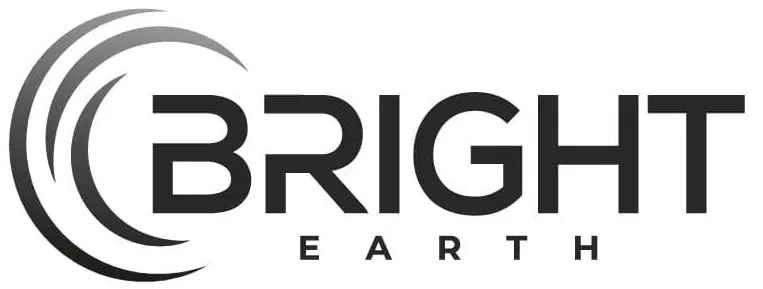Introduction to solar energy
Solar energy is a sustainable and renewable energy source that harnesses the power of the sun to generate electricity. Solar panels, also known as photovoltaic (PV) panels, are designed to capture sunlight and convert it into usable energy for your home or business. By utilizing solar energy, you can reduce your reliance on traditional fossil fuels, lower your electricity bills, and contribute to a cleaner environment. Additionally, the installation of solar panels can increase the value of your property and provide a sense of energy independence.

Environmental benefits of solar energy
Solar energy is one of the cleanest and most abundant renewable energy sources available. By harnessing the power of the sun, solar energy systems can significantly reduce greenhouse gas emissions, which contribute to climate change. According to the U.S. Environmental Protection Agency, the average residential solar system could reduce carbon emissions by about 3 to 4 tons annually, which is equivalent to planting about 100 trees per year. Additionally, solar energy does not produce air or water pollution and requires minimal water for maintenance, making it a sustainable and environmentally friendly alternative to traditional energy sources.
Cost-saving benefits of solar energy
Switching to solar energy can lead to significant cost savings for homeowners in the long run. By harnessing the power of the sun, you can reduce your reliance on traditional electricity sources, resulting in lower monthly utility bills. In addition, many governments and local authorities offer incentives, rebates, and tax credits to homeowners who install solar panels, further offsetting the initial investment. Over time, these savings can help to recoup the upfront costs of switching to solar energy, making it a financially viable and sustainable choice for many households.
Energy independence with solar power
With solar power, you can generate your own electricity, reducing your reliance on the grid and potentially saving on your energy bills. By installing solar panels, you can produce your own clean, renewable energy right at home. This can give you independence from fluctuating energy prices and provide a more sustainable energy source for your household.
Government incentives and rebates
Government incentives and rebates can significantly reduce the cost of switching to solar energy. Many governments offer financial incentives, such as tax credits or rebates, to encourage the installation of solar panels. Some incentives cover a percentage of the installation costs or offer a tax deduction, making the switch to solar energy more affordable for homeowners. By taking advantage of these incentives, you can not only save money on your initial investment but also contribute to a more sustainable and eco-friendly energy source.
Solar energy for residential use
If you’re considering solar energy for your home, it’s essential to understand the benefits it can bring. Solar energy can help you save on your electricity bills, reduce your carbon footprint, and increase the value of your property. With the advancements in technology, installing solar panels has become more affordable and efficient. In addition, many utility companies offer incentives and rebates for switching to solar energy, making it even more cost-effective. It’s a sustainable and eco-friendly choice that can positively impact both your wallet and the environment.
Solar energy for commercial use
Solar energy is becoming increasingly popular for commercial use due to its cost-saving benefits and environmental advantages. Switching to solar energy for commercial properties can significantly reduce electricity bills and provide a clean, renewable source of power. Many businesses are also eligible for tax incentives and rebates for installing solar panels, making the initial investment more affordable. Moreover, by utilizing solar energy, businesses can demonstrate their commitment to sustainability and reduce their carbon footprint, which can be advantageous for marketing and brand image. Overall, solar energy is a practical and environmentally friendly option for commercial properties looking to reduce operating costs and environmental impact.
Installation process of solar panels
The installation process for solar panels involves several steps. First, a site assessment is conducted to determine the best location for the panels. Then, the mounting system is installed onto the roof, followed by the placement of the solar panels. After the panels are in place, the wiring and inverter are connected to convert the solar energy into usable electricity for your home. Finally, the system is tested to ensure it is functioning properly. Overall, the installation process is straightforward and can be completed within a few days, depending on the size of the system.
Maintenance of solar energy systems
Solar energy systems require minimal maintenance. Here’s what you can expect:
- Regular Cleaning: Panels should be cleaned with water and a mild detergent to remove dirt, dust, and debris. This should be done at least twice a year, or more often if the panels are in a dusty area.
- Check for Damage: Regularly inspect the panels for any signs of damage or wear, such as cracks or loose connections.
- Inverter Inspection: The inverter, which converts solar energy into usable electricity, may need periodic checks to ensure it is functioning properly.
- Professional Servicing: It’s a good idea to have a professional technician inspect the system every few years for a comprehensive check-up.
By following these simple maintenance steps, you can ensure that your solar energy system continues to operate efficiently and provide you with clean, renewable energy for years to come.
Conclusion: Why switch to solar energy
There are several compelling reasons to switch to solar energy. Firstly, it is a renewable and sustainable energy source, meaning it will never run out. Additionally, by harnessing solar power, you can significantly reduce your environmental impact and contribute to the fight against climate change. Moreover, making the switch can lead to substantial long-term cost savings on your energy bills. Finally, by embracing solar energy, you can take a proactive step towards energy independence and self-sufficiency.
